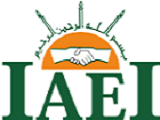Zakat Management Model by Imuem Meunasah Based on Baitul Mal Gampong in Aceh
Abstract
Zakat management institutions in Aceh are different from other provinces. It was stated in Law no. 11 of 2006 that it concern Baitul Mal and Law No. 10 of 2007 that zakat management institutions reach the village level, Baitul Mal Gampong led by Imuem Meunasah as a customary institution that oversees the implementation of Islamic law. The establishment of zakat institutions at the village level in Aceh is to explore and manage zakat potential followed by good management because the potential of zakat circulates at the village level. Likewise, Imuem Meunasah was established as one of the traditional institutions to lead the zakat institution, Baitul Mal Gampong, to build public trust in the zakat institution. In reality, zakat management by zakat institutions at the village level in Aceh led by Imuem Meunasah has not had an impact according to the objectives, both in terms of collection and distribution. This study aims to find out the problems that occur and get strategic solutions, both internally and externally, to the problem of zakat management by Imuem Meunasah at zakat institutions at the village level. The research methodology is descriptive qualitative using the ANP analysis tool with seven respondents. There are two problems in the management of zakat by Imuem Meunasah as the head of Baitul Mal Gampong. The main problem is the internal aspect as well as related to strategic solutions. The internal problems are human resources with a rater agreement value of 34, 93%, Synergy with a rater agreement r value of 28,39%, and Socialization with a rater agreement value of r 36,66%. The solutions in this study are related to Duty and area, Selective, and Out of the Box. The existence of Imuem Meunasah as the Chairman of Baitul Mal Gampong must still be maintained. Meanwhile, the socialization aspect must be transparent, creative and innovative.
Keywords
Full Text:
UntitledReferences
(n.d.), Y. D. S. dan M. T. (2006). Fiqih Tamkin (Fiqih Pemberdayaan) Membangun Modal Sosial Dalam Mewujudkan Khairu Ummah. Qisthi Press.
Abdullah, J. (n.d.). Revitalisasi Amil Zakat di Indonesia: Telaah Atas Model-Model Kreatifitas Distribusi Zakat. Ijtimaiyyah, Vol. 7, 38.
Ahmad, Z. A., & Rusdianto, R. (2018). The Analysis of Amil Zakat Institution/Lembaga Amil Zakat (LAZ) Accountability toward Public Satisfaction and Trust. Muqtasid: Jurnal Ekonomi Dan Perbankan Syariah, 9(2), 109.
Anwar, A. S. H. (2012). Model Tatakelola Badan dan Lembaga Amil Zakat sebagai Upaya Untuk Meningkatkan Pemberdayaan Ekonomi Masyarakat (Studi pada Badan/Lembaga Amil Zakat di Kota Malang). Jurnal Humanity, 7(2).
Ascarya. (2020). Analisis Hasil. Pusat Ekonomi & Bisnis Syariah.
Azra, A. (2002). Reposisi Hubungan Agama dan Negara: Merajut Kerukunan Antarumat. Kompas.
Bin-Nashwan, S. A., Abdul-Jabbar, H., Aziz, S. A., & Viswanathan, K. K. (2020). A socio-economic model of compliance. International Journal of Sociology and Social Policy, 40(3/4), 304–320.
Clarashinta Canggih, Khusnul Fikriyah, A. Y. (n.d.). Potensi Dan Realisasi Dana Zakat Indonesia. Al-Uqud: Journal of Islamic Economics, Volume 1 N, 14–26.
Coleman, J. (1990). Foundations of Social Theory. Harvard University Press.
D. Istikhomah, A. (2019). Pengaruh Literasi Terhadap Kepercayaan Muzakki Pada Pengelola Zakat dengan Akuntabilitas dan Transparansi Sebagai Variabel Intervening. Economic Education Analysis Journal, 8 (1), 95–109.
Gani, I. A. (1998). Kedudukan dan Fungsi Lembaga Adat dan Kebudayaan Aceh (LAKA) dalam Penyelenggaraan Otonomi Daerah dan Otonomi Desa di Aceh. In Thesis. Program Pascasarjana UNPAD.
Hendri Tanjung, A. D. (2013). Metodologi Penelitian Ekonomi Islam. Gramata Publishing.
Jumadiah, Laila, M. R., Sastro, M., & Herinawati. (2018). Model Corporate Social Responsibility Based on Local Wisdom in West Aceh Regency. In Proceedings of MICoMS 2017 (Vol. 1, pp. 215–220).
Juned, T. (2003). Laporan Penelitian: Pemerintahan Mukim Masa Kini. 38.
Lyda Judson Hanifan. (1916). The Rural School Community Center. Annuals of The American Academy of Political and Social Sciences.
Maria Ulfa, S. (2016). Response of Indonesian Academicians toward Factors Influencing the Payment of Zakat on Employment Income. Research on Humanities and Social Sciences., Vol.6, No., 87–94.
Masdar F, M. (2005). Menggagas Ulang Zakat. Mizan.
Muammar Khadafi. (n.d.). Kemiskinan Di Provinsi Aceh. Pascasarjana Universitas Syiah Kuala, Vol. 1, No, 57.
Muflih, M. (2023). ’s adoption of mobile service: integrating the roles of technology acceptance model (TAM), perceived trust and religiosity. Journal of Islamic Accounting and Business Research, 14(1), 21–33.
Mukhibad, H., Fachrurrozie, F., & Nurkhin, A. (2019). Determinants of the Intention of Muzakki To Pay Professional Zakat. Share: Jurnal Ekonomi Dan Keuangan Islam, 8(1), 45–67.
Laporan Hasil Penelitian Potensi Zakat Mal Di Aceh, (2014).
Redzuan, N. (n.d.). Participation as A Medium Of Empowerment In Community Development. European Journal of Social Sciences, 11, 171.
Rusli, Hamzah, A., & Syahnur, S. (2013). Analisis Dampak Pemberian Modal Zakat. Jurnal Ilmu Ekonomi Pascasarjana Universitas Syiah Kuala, 1(1), 56–63.
Soekartawi. (2005). Analisis Usaha Tani. Raja Wali Press.
Suyanto, B. (2014). Sosiologi Ekonomi; Kapitalisme dan Konsumsi di Era Masyarakat Post-Modernisme. Kencana.
Tesoriero, J. I. dan F. (2008). Alternatif Perkembangan Masyarakat di Era Globalisasi: Community Development. Pustaka Pelajar.
Tjokrowinoto, M. (1999). Pembangunan: Dilema dan Tantangan. Pustaka Pelajar.
Tuner, B. S. (1991). Religion and Social Theory. Sage Publications.
Wahid, A. (n.d.). Peran Lembaga Adat Gampong dalam Pemantapan Kinerja Forum Kemitraan Polisi Masyarakat (Fkpm) Di Aceh. Jurnal Tahqiqa, Vol. 7.
Wahid, N. A. (n.d.). Optimalisasi Peran Baitulmal Dalam Peningkatan Pungutan Zakat: Kajian Terhadap Faktor Penentu Pembayaran Zakat di Aceh. Akademika, Vol.20, No, 220–221.
Wahyuni-TD, I. S., Haron, H., & Fernando, Y. (2021). The effects of good governance and fraud prevention on performance of the zakat institutions in Indonesia: a Sharīʿah forensic accounting perspective. International Journal of Islamic and Middle Eastern Finance and Management, 14(4), 692–712.
DOI: http://dx.doi.org/10.24042/febi.v7i2.15452
Refbacks
- There are currently no refbacks.
Copyright (c) 2022
Ikonomika : Jurnal Ekonomi dan Bisnis Islam is a Journal of Islamic Economics and Business, Published by the Faculty of Islamic Economics and Business at UIN Raden Intan Lampung Indonesia. This work is licensed under a Creative Commons Attribution-ShareAlike 4.0 International License.






11.png)



.png)
1.png)
.png)
.png)
.png)
2.png)
.png)
.png)
.png)